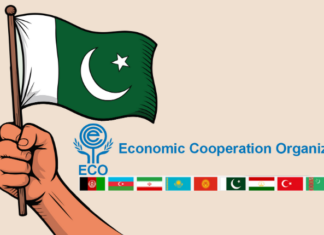The Trump administration’s freeze on funding for “non-essential” federal programs is threatening the future of the Fulbright scholarship and other US-Pakistan exchange initiatives, impacting the opportunities for talented Pakistani students to study in the United States.
According to a report by Dawn, the freeze, which has been in effect since February 2025, has caused the suspension of cultural and academic exchange programs administered by the US State Department’s Bureau of Educational and Cultural Affairs (ECA), including the Fulbright program, one of the most prestigious scholarships for Pakistani students.
In addition to the Fulbright disruptions, the United States Educational Foundation in Pakistan (USEFP) also announced the closure of its Global Undergraduate Exchange Programme (UGRAD) on Tuesday. The program, which has operated for 15 years, allowed Pakistani students to spend a semester at US universities. Each year, over 100 students participated in this non-degree academic exchange.
The US Department of State informed USEFP that the program would no longer be offered, disappointing many students who had applied for this year’s sessions. While no specific reasons were given for the termination, USEFP encouraged students to explore other opportunities.
Despite these issues, the USEFP has continued accepting applications for the 2026 cycle, though sources suggest the program’s resumption is unlikely.
The Fulbright program, which has been providing financial support for Pakistani students to pursue Master’s and PhD degrees in the US, is currently in limbo. Although the freeze was initially described as temporary, lasting only 15 days, it has continued for more than two months, with no official timeline for resumption.
The suspension has affected not only future applicants but also current scholars, with stipends for Fulbright participants in the US being delayed due to the funding pause.
The Fulbright program has been instrumental in fostering academic exchange between the US and Pakistan, with over 4,000 Pakistani students benefiting from the scholarship since its launch in 1951. The program offers financial support for travel, living stipends, health insurance, and tuition, covering the entire study period for selected students.
Since its inception, more than 9,300 Pakistanis have participated in USEFP-managed exchange programs, which have played a key role in strengthening bilateral ties.
The lack of clarity from the US government has raised broader concerns about the future of academic mobility for Pakistani students. Many students fear that tightening visa restrictions, regulatory overreach, and shifting political attitudes may further restrict their opportunities to study abroad.
Recent data shows that around 11,000 Pakistani students were enrolled in US institutions during the 2023–24 academic year, a 16% increase from the previous year. Pakistan now ranks as the 15th-largest source of international students in the US, but these developments are raising concerns about whether the flow of Pakistani students to US universities will continue amid ongoing challenges.
























